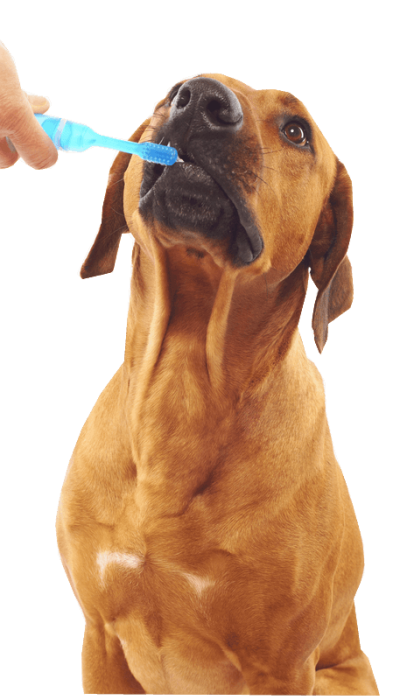Senior Pet Dental Care
SENIOR PET DENTAL CARE
By the time a dog or cat enters its senior years, many dogs have not received any or adequate prophylactic dental care over their lifetimes. This causes serious problems when dealing with an older dog or cat. The lack of senior pet dental care takes a toll. The majority of extractions done on pets are when the animal is older. A lot of the gum has receded from the tooth, the nerve and blood supply have declined and the tooth is only being held in the tooth socket (alveolus) by a literal thread!
If one does an oral exam in many older dogs, often the canines, premolars and molars are hidden and enshrouded in a massive amount of calculus or stone that has built up over years. Senior pet dental care issues can cause internal medical problems. Underneath all that plaque, tartar and calculus are bacteria that are absorbed into the circulatory system. As they used to say “all roads go through Rome”. It is the same with anything absorbed into the bloodstream that “all things go through the heart”. The bacteria form plaques which are clumps of material that cling to the heart valves. This can cause or exacerbate current heart disease in the senior pet.
ANESTHETIC RISKS
As the pet gets older, organs are not as new as they once were. Most older dogs do well under anesthetics but it is a riskier thing to do compared to neutering a dog at 6 months of age. It is crucial that a complete physical exam, cardiac workup and appropriate blood work be done before the procedure is done. I will often do this about a week before the dental is to be performed plus I always start dogs on appropriate antibiotics way before the day of the dental. Clindamycin, Doxycycline or Clavamox® are my usual go to drugs of choice. I always want anti-microbial drugs in the dog so they can start to take effect before I do my work. Plus, there usually is less bleeding compared to not having antibiotics in the body.
Senior pet dental care can be difficult on those older animals with a pre-existing condition. There are those dogs and cats that have too high an anesthetic risk to be put under general anesthesia. I do one of two things. If the dog will allow it, I perform a hand scaling of the teeth while the animal is awake and do as much as possible under those conditions without causing pain to the animal. I have also done countless dental procedures with Telazol®. This is a very useful muscle relaxant. I have used it since it hit the market back in 1987. The dog is completely awake but is immobilized and feels no pain. The swallowing reflex is present so there is no problem with aspiration pneumoniaThis is a condition when food or ingesta is inhaled into the lungs. This can occur with dogs with a cleft palate but most commonly from post surgical procedures after the endotracheal tube has been removed. The animal vomits and if not caught in time, is inhaled into the lungs leading to infections and breathing problems.. The anesthetic is deep enough to do minor extractions plus there is a quasi reversing agent (Dopram®) that wakes the dog up in about 20 seconds.
OTHER SENIOR PET DENTAL CONCERNS
Gingival hyperplasia is an enlargement of the gum tissue that is known as epulis in the senior dog but rarely seen in the cat. This can lead to further dental disease caused by the folds and crevices that lurk around the base of the tooth nearby. It is usually removed via a surgical laser.
Retro-orbital Abscesses are also common in older dogs. This is caused by abscessation of an upper molar. The abscess forms a large, hot swollen mass above the left or right muzzle and forward to the eye socket. It is extremely painful and must be lanced via the hard palate under a general anesthetic.
For more details on dental care please take the time to read Pet Dental Care.


